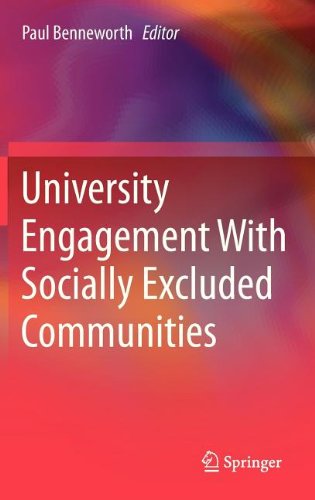

Most ebook files are in PDF format, so you can easily read them using various software such as Foxit Reader or directly on the Google Chrome browser.
Some ebook files are released by publishers in other formats such as .awz, .mobi, .epub, .fb2, etc. You may need to install specific software to read these formats on mobile/PC, such as Calibre.
Please read the tutorial at this link: https://ebookbell.com/faq
We offer FREE conversion to the popular formats you request; however, this may take some time. Therefore, right after payment, please email us, and we will try to provide the service as quickly as possible.
For some exceptional file formats or broken links (if any), please refrain from opening any disputes. Instead, email us first, and we will try to assist within a maximum of 6 hours.
EbookBell Team

4.7
36 reviewsThis volume provides insightful analysis of the way higher education engages with socially excluded communities. Leading researchers and commentators examine the validity of the claim that universities can be active facilitators of social mobility, opening access to the knowledge economy for formerly excluded groups. The authors assess the extent to which the ‘Academy’ can deliver on its promise to build bridges with communities whose young people often assume that higher education lies beyond their ambitions. The chapters map the core dynamics of the relationship between higher education and communities which have bucked the more general trend of rapidly rising student numbers. Contributors also take the opportunity to reflect on the potential impact of these dynamics on the evolution of the university’s role as a social institution. The volume was inspired by a symposium attended by a wide spectrum of participants, including government, senior university managers, academic researchers and community groups based in areas suffering from social exclusion. It makes a substantive contribution to an under-researched field, with authors seeking to both shape solutions as well as better diagnose the problem. Some chapters include valuable contextual analysis, using empirical data from North America, Europe and Australia to add substance to the debates on policy and theory. The volume seeks to offer a defining intellectual statement on the interaction between the concept of a ‘university’ and those communities historically missing from higher education participation, the volume deepens our understanding of what might characterise an ‘engaged’ university and strengthens the theoretical foundations of the topic.